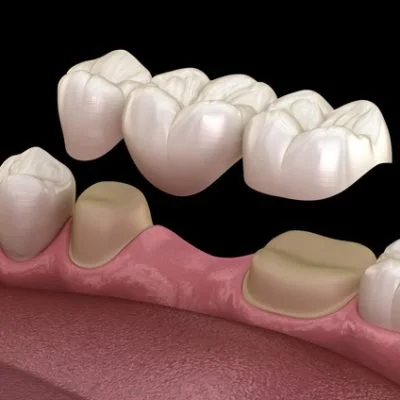Replacing Missing Teeth – Dentures, Bridges or Implants?
Losing a tooth can feel unsettling – both in terms of function and appearance.
Whether it’s from decay, gum disease, or trauma, the gap left behind can affect the way you eat, speak, and smile.
Fortunately, modern dentistry offers several excellent solutions for missing tooth replacement. The most common options are dentures, bridges, and dental implants. Each has its advantages, and the right choice depends on your individual situation, long-term goals, and budget.
As a cosmetic and implant dentist in London, here’s my professional take on the options available:
Dentures – A Traditional and Affordable Solution
Dentures are removable prosthetic teeth made from acrylic or a combination of acrylic and metal. They can replace a single tooth, multiple teeth, or even a full arch (all of the teeth).
Advantages:
Cost-effective compared to other treatments.
Can restore appearance quickly.
Useful if multiple teeth are missing.
Limitations:
They are removable, which means less stability compared to fixed options.
May feel bulky in the mouth.
Can move during eating or speaking, affecting confidence.
Bone in the jaw may continue to shrink over time, leading to changes in fit.
Dentures are a good short-term or budget-friendly option, but many patients prefer a more permanent solution.
Dental Bridges – Fixed but Dependent on Neighbouring Teeth
A dental bridge is a fixed restoration that literally “bridges” the gap left by a missing tooth. It involves preparing the teeth on either side of the space and placing crowns that support a false tooth in the middle.
Advantages:
Fixed in place – feels more natural than a denture.
Restores chewing function and aesthetics effectively.
Faster treatment time compared to implants.
Limitations:
Requires preparation (drilling) of potentially healthy adjacent teeth.
Can be harder to clean compared to a single implant.
May need replacement after several years due to wear or decay.
If you’re looking for a dental bridge in London, it’s often the right choice when neighbouring teeth already require crowns or when implants aren’t possible.
Dental Implants – The Modern Gold Standard
Dental implants are titanium posts surgically placed into the jawbone, acting like artificial tooth roots. Once integrated, they can support a crown, bridge, or even a full arch of teeth.
Advantages:
Independent solution – no need to involve neighbouring teeth.
Feels, functions, and looks like a natural tooth.
Helps preserve bone and prevent facial changes that occur with tooth loss.
Long-lasting with proper care (often decades).
Limitations:
Higher initial investment compared to dentures or bridges.
Requires minor surgery.
Treatment takes longer, as healing is needed before final restoration.
When comparing dentures vs implants, implants consistently offer superior comfort, stability, and long-term value.
So, Which Option is Right for You?
The best missing tooth replacement depends on your oral health, budget, and personal goals. For many patients, implants are the preferred option because they provide the most natural and durable solution. However, bridges and dentures still play an important role in dentistry – especially when multiple teeth are missing or when implants aren’t suitable due to cost, time or complexity of treatment.
Next Steps
If you are considering replacing missing teeth, I always recommend a thorough consultation and 3D imaging where appropriate. This allows us to assess your bone levels, gum health, and bite before advising whether dentures, a dental bridge, or implants will be the most suitable for you.
If you’re based in London and would like to explore your options, I’d be happy to guide you through a personalised treatment plan.



